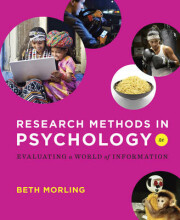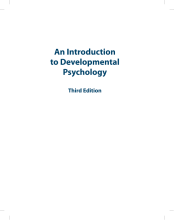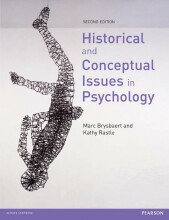Critical thinking about psychological constructs
20 important questions on Critical thinking about psychological constructs
What are the criteria for a field to be a science?
- Falsifiability
- parsimony
- coherence
- consistency
- replicability/openness
- systematic evidence; we should consistently find the same phenomena
What does the trait of coherence mean?
What does the trait of consistency mean?
if you would propose a theory that would prove the evolution theory wrong, it's probably not a good theory it is inconsistent with what we already know.
- Higher grades + faster learning
- Never study anything twice
- 100% sure, 100% understanding
What are the problems of pseudo-science?
- Problematic pretensions
- problematic theories
- problematic evidence
- problematic process
What phenomena fall under problematic pretensions?
- People using a verbal layer of scientific language to sound scientific but in reality their statements don't come to a conclusion
- science is used as an authority instead of an open correction process.
What phenomena are meant by problematic evidence?
- Post hockery; things explained after results are found.
- lack of hypothesis testing
- lack of replicability
What phenomena are meant by problematic process?
- Misplaced burden of proof: prove that it isn't true
- absence of self correction and criticism
- lack of openness.
How do we call an information-processing bias, the tendency to inappropriately analyze ambiguous stimuli, scenarios and events?
How is the interpretation bias implemented in psychological research?
- When results contrary to our beliefs occur we can infer that this is due to the way we do research, or the way the theory is.
- the interpretation bias in psychological research is the tendency to confirm predicted outcomes in terms of method relevant beliefs, but confirmed predictions in terms of theory relevant beliefs
- people choose the option to explain results that fits best with their beliefs.
What does it mean to say that in psychology measurement methods are peripheral and theory beliefs are very central?
- When research doesn't align with expectations people generally don't attribute this to theories not being correct, since theory stands central in psychology, touching theory causes a lot of explaining in other domains.
- When research doesn't align with expectations people generally attribute this to measurement methods. Since this is not so central in psychology people easily attribute it to it to avoid explaining things and people don't look back to it.
- since we don't have objective measurements like physics do it is easy to do this.
How does conceptual replication contribute to the centrality problem in psychology?
What are the reasons the interpretation bias is more common in psychology than in other sciences?
- Measurement methods are too peripheral in psychology
- theory based beliefs are too central in psychology
What do is meant by contextual sensitivity in psychology?
What are possible threats to reliability and validity with surveys?
- Surveys are subjective in the sense that
- interpretation of the language of the question might be different for different participants
- some questions and answers can be vague due to ambiguous language
- information is lost in translation
- surveys are context sensitive
- social desirability
- test-retest reliability is rarely checken
What is conflation and why is it a problem in surveys?
The fact that A & B are correlated might just reflect that we’re measuring the same thing twice
What are the psychometrics of a measure?
- Test-retest reliability
- internal consistency
- predictive validity
- construct validity
What is predictive validity?
How is shown that the iat is context sensitive?
Why shouldn't iat scores be used as a diagnostic tool?
- It does predict the retest scores for a sample.
- it has poor individual test-retest reliability
What is a problem with all direct measures, iat, fmri, etc?
iat measures reaction times, does that correspond to racist prejudice or biased association?
fmri measures oxygen levels does that correspond with depression or something else?
The question on the page originate from the summary of the following study material:
- A unique study and practice tool
- Never study anything twice again
- Get the grades you hope for
- 100% sure, 100% understanding
































